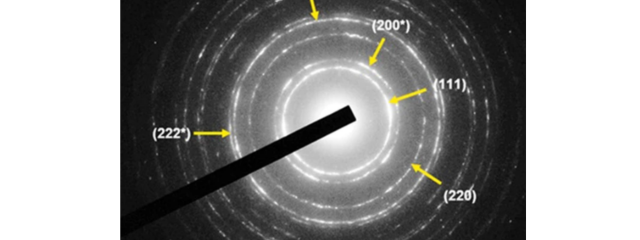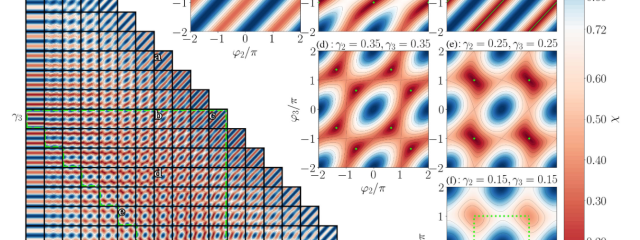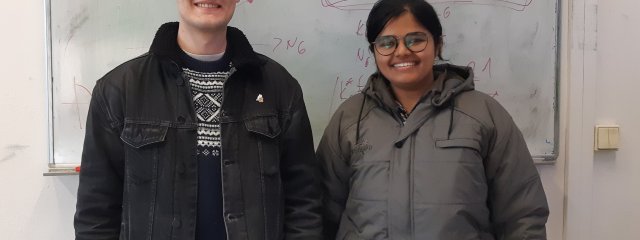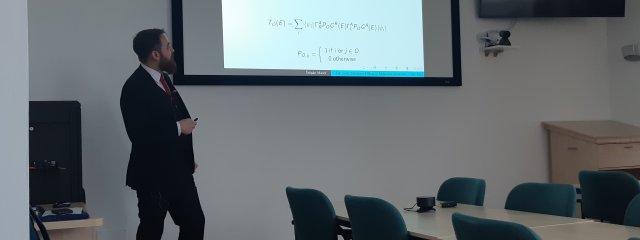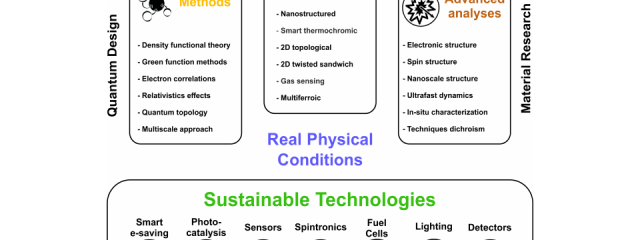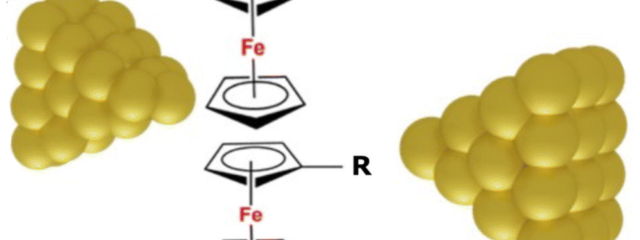News from the group of theoretical physics
Our colleague Dominik Šafránek from the Department of Condensed Matter Physics is the principal investigator of a project supported within the prestigious and highly competitive GA ČR JUNIOR STAR programme of the Grant Agency of the Czech Republic. As can currently…
The Department of Condensed Matter Physics has expanded with a new research group, Quantum Information and Thermodynamics, led by Ing. Dominik Šafránek, Ph.D. The group, funded by two prestigious grant — Primus and Junior Star—will focus on developing a novel…
Theory department members contributed to a complex DFT-based study of the van der Waals magnetic material VI₃, revealing how its specific easy axis direction is linked to lattice distortions and exceptionally high orbital momentum. The obtained solution has specific electronic…
A recent ACS Nano publication (featured on a cover) shows how assemblies of radical organic molecules on a superconducting surface can host distinct quantum states. The study demonstrates that varying molecular distance and orientation alters magnetic coupling, inducing transitions between…
A collaborative effort featuring an international team including I. Konyashin from Element Six Group, A. Cammarata from CTU, and A. Koliogiorgos from our department, delivers a definitive description of FCC-carbon's structural and electronic properties. For decades, the characteristics of FCC-carbon…
In a recent letter by Peter Zalom from FZU, Martin Žonda, and Tomáš Novotný from our department, a novel approach to understanding interacting quantum dots coupled to multiple superconducting leads, based on a so far hidden symmetry, has been unveiled.…
We welcome new group members: Subhasmita Ray, Ph.D., and Daniel Bobok, Mgr. Sc. We wish them interesting problems to solve, scientific breakthroughs, and productive studies during their stay at Charles University!
Congratulations to Štěpán Marek, Ph.D. on successful doctoral defence! We wish him much success in his postdoctoral position at the University of Regensburg!
The theoretical department and the department of nanostructures of KFKL participate in the the project Quantum materials for applications in sustainable technologies (QM4ST). The project was awarded from the Programme Johannes Amos Comenius co-financed by the EU, the main researcher…
Due to their infinite variability, molecular-based transistors offer an exciting alternative to the silicon technology. In collaboration with a lab in India, our theorists have described the workings of a molecular junction that is almost transparent for the electronic current.…





